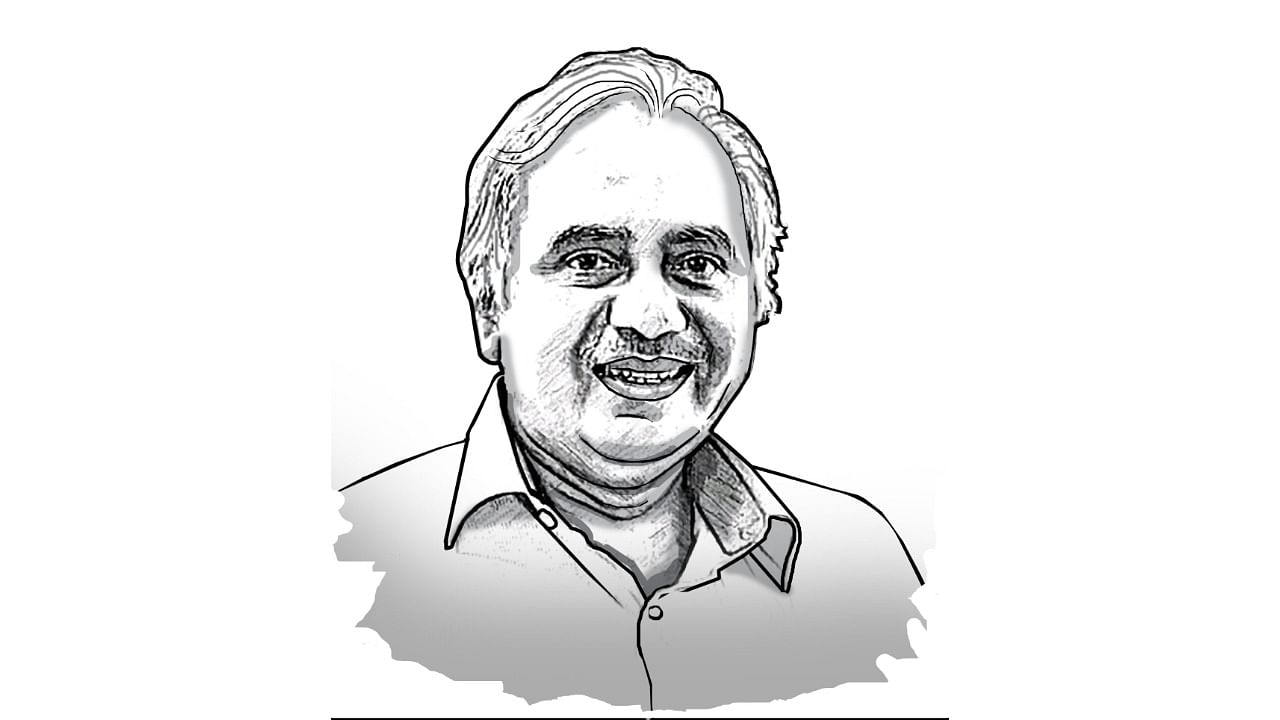
Seshadri Chari reads between the lines on big national and international developments from his vantage point in the BJP and the RSS  @seshadrichari
The good news is that demand for Electric Vehicles (EV) is set for a quantum jump in India in the next couple of years. And that may be the bad news, too. The government and domestic leaders in EVs are leaving no stone, or rather steering, unturned to boost EV sales from a meagre 2% to about 30% in the next five years. Considering the rising cost of petrol and diesel and their environment-related issues, EVs are becoming preferred vehicles among all segments of buyers. But with the government rolling out the red carpet to foreign EV-makers, will we simply end up handing over a market that domestic players and incentives have created to the likes of Tesla and the Chinese Build Your Dreams (BYD)? The fear of the EV market being swamped by foreign entities is real and bad news for ‘Make in India’ and ‘Atmanirbhar Bharat’.
Among the foreign players lining up to enter EV manufacturing in India, Chinese companies appear to be at the head of the queue lining up before government offices in New Delhi, even as the country is in the midst of general elections.
Chinese companies have several reasons to enter the Indian EV market, apart from the profits to be had selling their finished cars. China’s steel production, for instance, has increased, but a property market downturn and slowdown in infrastructure spending in that country have brought about a steel glut and overcapacity, and steel prices have plunged. All that steel needs to be used somewhere.
Additionally, many of the Belt & Road Initiative (BRI) projects have either stalled or have been put on slow track by China’s partner countries, resulting in falling Chinese exports. The Biden administration, meanwhile, bumped up tariffs on Chinese steel and aluminium. In March, two large steel producers in Vietnam initiated an anti-dumping probe on China’s hot-rolled steel exports. Chile decided to impose temporary anti-dumping tariffs on Chinese steel products used in its mining industry in a bid to support faltering local producers. Mexico had already imposed tariffs on Chinese steel since December.
With all these firewalls going up against its steel exports, China will have to turn to new products that can take up all that steel, and EVs present an opportunity. One wonders if that has anything to do with a Chinese company’s move to tie up with an Indian steelmaker to make EVs in India.
Meanwhile, China’s National Development and Reform Commission (NDRC) has given the green signal to Stellantis, the world’s fourth-largest automaker, to buy a 20% stake in Leapmotor to facilitate this Chinese automaker to make and sell EVs outside China, including India.
BYD, now the world’s largest EV-maker, having overtaken Tesla last year, which entered the Indian market in 2021, wants to take pole position in the Rs 30-lakh-plus EV category as well as cover 90% of the total EV market in India. Last year, BYD had, in partnership with an Indian auto parts-maker, approached the government for permission to set up a manufacturing unit, which was rejected. But BYD’s Indian subsidiary is hopeful that it will happen soon. As it unveils new models and promises discounts in the coming months, it is seen to be signaling a brutal price war in India, as has happened in China. Tesla has announced plans to enter the Indian market, but Elon Musk surprised everyone recently by skipping an expected tour of India, during which he was tipped to meet Prime Minister Modi, and took off to China, instead, where he got the ball rolling for his autonomous car software.
When the government has consistently rebuffed Islamabad’s proposals for trade with India saying that “terrorism and trade cannot go together”, it is difficult to explain the rationale behind its soft policy in allowing Chinese EVs and steel imports into India at a time when India-China relations have been fraught, with an ongoing military stand-off in the Ladakh sector since China’s incursions there in April 2020, and especially as China ratchets up its territorial ambitions in the Arunachal sector as well. After 21 rounds of talks, Delhi has taken a stand that normalcy cannot be restored until China withdraws its troops and disengages from the Depsang and Demchok areas. Besides insulating Indian industry from predatory Chinese and other foreign entities to strengthen Make in India, strategic and security obligations mandate New Delhi to keep Chinese trade and investments out of the Indian market.
